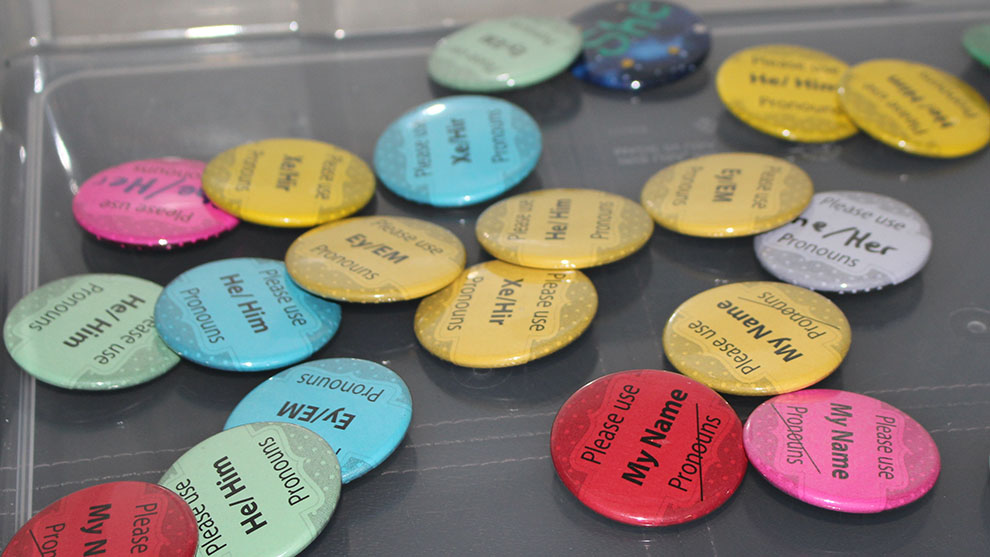LGBTQ2SIA+
Consultation held on gender-neutral ID options
Trans and non-binary individuals invited to private discussion

caption

caption
Gender-neutral options on ID cards are generating discussion in Halifax.South House and the Nova Scotia Human Rights Commission partnered for a discussion on gender-neutral options on government issued identification Thursday.
Carmella Farahbakhsh, the administrative and volunteer co-ordinator at South House, is one of the facilitators of the consultation.
“Gender markers can be scary and dangerous and can lead to violence,” said Farahbakhsh, adding that this violence can come from forced outing of transgender and non-binary people.
Currently Nova Scotia’s options for gender identity are male or female on official government identification. Someone who does not assume the gender identity given to them at birth can change their ID to other with a written statement they make, along with a statement from a prescribed professional.
Allison Smith, human rights officer at the Nova Scotia Human Rights Commission, said gender neutral markers are extremely important to people who do not identify within the gender binary (male or female) or are trans.
“They (ID documents) are a space in which people can see their gender identity affirmed, or where they can see their gender identity misidentified or erased,” said Smith in an email to The Signal.
The event at South House Sexual and Gender Resource Centre is for trans and non-binary individuals to discuss their experiences with ID cards and to voice their opinions about them. Farahbakhsh said it’s a closed talk so people can speak freely.
“We just want to make sure trans people are being heard in a process that is affecting them,” said Farahbakhsh. “Through this collaboration, voices can be heard.”
Some of the material covered in the consultation will be recorded, while keeping the participants anonymous.
Smith said the information will then be given to the human rights commission so they can better understand the needs and experiences of those affected by the issue.
“The importance of doing a consultation now is because conversations about gender on ID have been happening across the country,” said Smith. “Now is a good time to reach out to impacted communities to ensure that their voices are included in these kind of conversations.”
NDP proposed bill
Earlier this week, the Nova Scotia NDP announced their plan to reintroduce a bill that would add an option on government issued ID for people who do not identify as male or female, or do not wish to identify. There would be an option to have an X instead.
Gary Burrill, the NDP leader for Nova Scotia, said the bill is important.
“It’s far more sensible to have an option for gender-neutral self identification,” he said, adding he doesn’t see any gain in having people identify their sex on their identification.
The bill was initially introduced in October 2016, but it did not make it to a third reading and was not voted on. It is common for private members’ bills to not make it to a vote.
Following Ontario’s lead
Ontario has already implemented a gender-neutral option for the sex section of government-issued identification. Instead of an X, the section is not included.
Farahbakhsh, who uses they/them pronouns, said the X may not be the solution to the ID problem.
“The X, I feel complicated about; it outs people in a really fast way and can lead to further questions and then they have to explain or validate (their identity),” they said.
“My dream is that there wouldn’t be a gender marker on identification; I don’t think it’s important information.”

